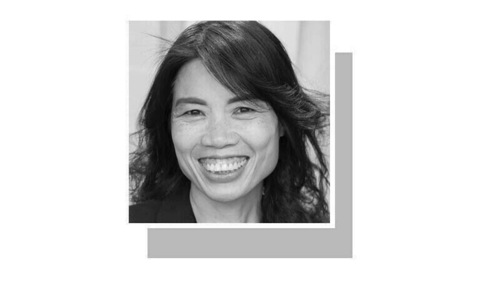India's SC says temple to be built on disputed Ayodhya site, alternative land to be provided for mosque

The Supreme Court of India on Saturday, while announcing its verdict on a disputed land where Hindu hard-liners demolished a 16th century mosque in 1992, ruled in favour of the Hindus and said that a temple will be constructed on the Ayodhya land.
The court noted that the demolition of 460-year-old Babri Mosque in 1992 was a violation of law and ordered that five-acre alternative land in a suitable, prominent place be provided to Muslims for a mosque. The land for the mosque will be acquired by the government, the court ruled, according to Scroll.in, in a historic judgement aimed at ending a bitter and decades-old legal and sectarian battle.
The court's unanimous decision is likely to have a significant impact on fraught relations between India’s Hindus and Muslims, who constitute 14 per cent of its 1.3 billion people.
The Sunni Muslim group involved in the case said it would likely file a review petition, which could trigger another protracted legal battle.
“This is not justice,” the group’s lawyer, Zafaryab Jilani, was quoted as saying by Reuters.
According to The Hindu, the top court ordered the government to formulate a scheme within three months under the Ayodhya Act 1993 and set up a trust. Till the trust is formed, the ownership of the site will rest with the Centre. The Shia petition was dismissed.
"There is adequate material in ASI report to conclude the following: Babri Masjid not constructed on vacant land. There was a structure underlying the disputed structure. The underlying structure was not an Islamic structure," said the Supreme Court, according to Scroll.in.
"But the ASI report does not say if the structure was demolished for the mosque. It has left unanswered this critical point: whether temple was demolished for mosque."
"This court must accept faith and accept belief of worshippers," India's Chief Justice Ranjan Gogoi was quoted as saying. "Court should preserve balance."

The verdict is a huge victory for Hindu nationalists under Indian Prime Minister Narendra Modi, who had promised to build the temple in 2014 elections that brought him to power.
"The halls of justice have amicably concluded a matter going on for decades. Every side, every point of view was given adequate time and opportunity to express differing points of view," said Modi following the ruling. "This verdict will further increase people’s faith in judicial processes."
Foreign Minister Shah Mahmood Qureshi objected to the timing of the verdict, which coincides with the inauguration of the Kartarpur Corridor today, and said Pakistan would issue its response after going over the judgement in detail.
"Could it [verdict] not have waited a few days? I am deeply saddened at the insensitivity shown at such a joyous occasion," he said while talking to DawnNewsTV. "You should have taken part in this happy occasion and not attempted to divert attention. The dispute is a sensitive issue and should not have been made part of this happy day."
The dispute

In the 1980s, as Hindu nationalism and the Bharatiya Janata Party (BJP) began to strengthen, pressure grew for the mosque to be knocked down and replaced by a glorious Hindu temple.
In 1992, a Hindu mob estimated to number 200,000 did just that, reducing the mosque to rubble.
This unleashed some of the worst religious riots since India's bloody partition at the end of British colonial rule in 1947, leaving around 2,000 people dead, mainly Muslims.
Hindu hard-liners said they wanted to build a new temple to Hindu god Ram on the site, which they revere as his birthplace. They said the mosque was built after a temple dedicated to the Hindu god was destroyed by Muslim invaders.
After the demolition of the mosque, Hindus and Muslims took the issue to a lower court, which in 2010 ruled that the disputed land should be divided into three parts — two for Hindus and one for Muslims.
That was challenged in the Supreme Court by the two communities represented by Hindu Maha Sabha, the Sunni Waqf Board, and the Nirmohi Akhara.
The five judges started daily proceedings in August after mediation failed to find a compromise.
Modi in a series of tweets appealed for peace ahead of the verdict. He had earlier cautioned his council of ministers from making unnecessary statements on the issue that could stoke public sentiments.
Appeals for peace also came from Hindu and Muslim organisations and various political leaders. India’s Home Ministry has asked all states to be on alert.
Tight security for judges
The security outside the residences of the five judges on the constitution bench was beefed up in Delhi, said India Today. Chief Justice Gogoi's security was upgraded to Z-plus.

At least 40,000 police personnel have been deployed in Mumbai, according to Scroll.in, while drones and CCTVs will be used to monitor the situation. “We are prepared to tackle any eventuality,” DCP Pranay Ashok was quoted as saying. “We are also monitoring online activities through our social media wing. We will block objectionable posts and content as need be to ensure that no rumours are spread.”
Authorities increased the security in Ayodhya, 550 kilometers east of New Delhi, and deployed more than 5,000 paramilitary forces to prevent any attacks by Hindu activists on Muslims, who comprise 6% of the town’s more than 55,500 people.
Earlier, authorities banned the assembly of more than four people at one place in and around Ayodhya, a town in the northern state of Uttar Pradesh.
The Uttar Pradesh government ordered all the schools and colleges to remain closed until Monday.














































